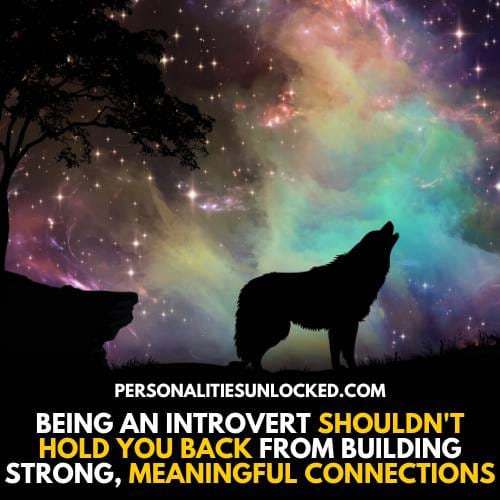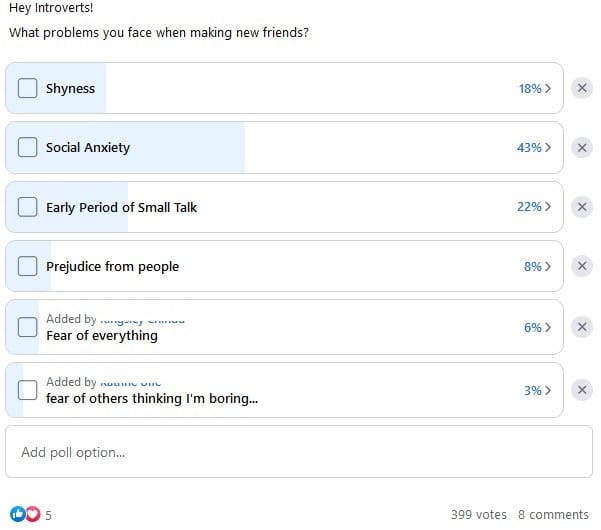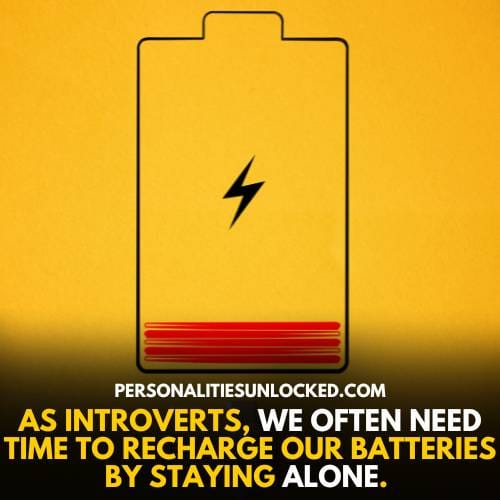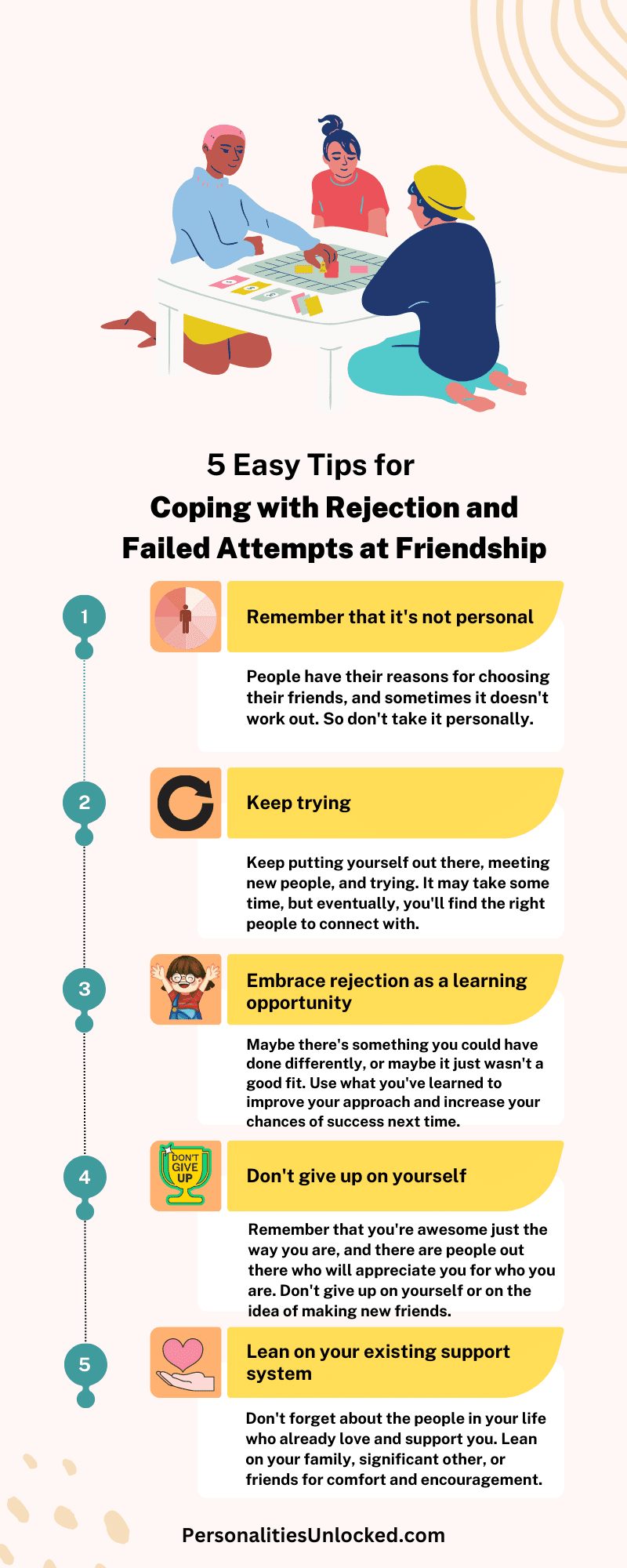Table of Contents
Are introverts good at making friends? As an introvert myself, I can certainly understand the desire to make friends and connect with others, while at the same time feeling hesitant or uncomfortable in social situations.
The stereotype of introverts being shy or socially awkward can certainly make us wonder if we’re cut out for making friends, but I firmly believe that being an introvert doesn’t have to hold you back from building strong, meaningful connections with others.
Are introverts good at making friends?
First of all, let’s acknowledge that there is no one-size-fits-all answer to this question. Just like extroverts, introverts come in all shapes and sizes, with different personalities, experiences, and comfort levels in social situations. Some introverts may have an easier time making friends than others, depending on factors such as their social skills, interests, and the opportunities they have to meet new people.
That being said, there are a few reasons why I believe that introverts can be just as good at making friends as extroverts, if not better in some cases. Check out some of my thoughts on the matter:
- Quality over quantity: Introverts tend to be more selective when it comes to their social circle, preferring to have a few close friends rather than a large group of acquaintances. This means that when an introvert does make a friend, they are more likely to invest time and energy into that relationship, building a deeper connection and a stronger bond.
- Listening skills: One of the strengths of introverts is their ability to listen and observe, which can make them excellent conversationalists and good at picking up on social cues. This can help an introvert build rapport with others, as people tend to appreciate being heard and understood.
- Shared interests: Introverts tend to have strong interests and passions and may seek out others who share those interests. This can make it easier to connect with like-minded people and build friendships around common hobbies or pursuits.
- Authenticity: Many introverts are comfortable being themselves and expressing their true personality rather than trying to fit into a certain mold or please others. This can make them more attractive as friends, as people appreciate genuine connections and honesty.
Of course, there are also challenges that introverts may face when it comes to making friends, such as social anxiety or difficulty putting themselves out there. However, with practice, self-awareness, and a willingness to step outside of their comfort zone, introverts can overcome these barriers and build strong, meaningful relationships with others.

Then Why There’s a Misconception That Introverts Are Not Good At Making Friends?
Ah, the age-old question plagues us introverts: why do people assume we’re bad at making friends? It’s tricky, but I’ll do my best to shed some light on the matter from an introvert’s perspective.
First of all, let’s acknowledge that stereotypes are a tricky thing. They often arise from a few people’s experiences or assumptions and then get perpetuated through cultural messaging, media portrayals, and the like. In the case of introverts, the stereotype of being shy, awkward, or anti-social has been around for a long time, and unfortunately, it’s not always accurate or fair.
So why does this stereotype persist? Here are a few possible reasons:
| Misconceptions | Explanations |
| Visibility bias | In social situations, extroverted behavior is more visible and attention-grabbing than introverted behavior, which can make it seem like extroverts are more outgoing and sociable. |
| Misunderstandings | Because introverts tend to be more reserved and thoughtful, they may come across as uninterested or unfriendly to those unfamiliar. This can contribute to the misconception that they’re not good at making friends. |
| Social anxiety | Some introverts may struggle with social anxiety or shyness, making it harder to connect with others. This can make it seem like we’re being rude and don’t want to be friends. |
| Personal bias | Some people may have a personal bias against introverts, either because of their own experiences or cultural messaging that portrays introverts as less desirable or interesting than extroverts. |
| Limited social energy | Introverts may feel drained or overwhelmed after extended periods of social interaction, which can make it harder for them to maintain a large circle of friends. |
I also did a survey among 400 people based on the key reasons shared here that explain why introverts struggle with friendship. Here’s the result:

- According to my findings, out of 400 introverts, 43% introverts agree that social anxiety is the number 1 hurdle when making friends
- 22% introverts agree that early period of small talk discourages them from making new friends.
- 18% introverts cannot make new friends due to shyness
- 8% introverts face prejudice from people when making friends, meaning they get judged because they talk less and come off as uninterested, while they’re genuinely interested.
- 9% introverts said that they have fear of many things, especially people thinking they’re boring when making new friends.
As per this study, you can see that the fact that people think introverts are bad at making friends is actually not introvert’s fault. They face challenges like shyness, anxiety, and prejudice which discourage them to actively seek new friendships.
All of that being said, it’s important to remember that introverts are just as capable of making friends as extroverts – and often, the friendships they form are deeper and more meaningful. While it can be frustrating to deal with stereotypes and misconceptions, the best thing we can do as introverts is to be ourselves, seek out like-minded individuals, and focus on building quality relationships rather than trying to fit into someone else’s mold.
So, fellow introverts, we may be misunderstood at times, but we have plenty to offer in the realm of friendship and social connection. And who knows, maybe we’ll even surprise a few people along the way!
Challenges faced by introverts when making friends
Ah, the joys of being an introvert trying to make new friends. While introverts certainly have a lot to offer in the friendship department, it’s not always easy to put ourselves out there and connect with others. Here are five challenges we might face along the way:
- Social exhaustion: As introverts, we tend to get drained by social interaction more quickly than our extroverted counterparts. This means that making new friends can be a bit of a catch-22 – we want to connect with people, but we also need time alone to recharge. It can be hard to strike a balance between these two needs, especially when we’re trying to form new relationships.
- Small talk: Let’s face it, small talk is not the introvert’s strong suit. We’d much rather dive into deep conversations about our passions, interests, and ideas than make polite chitchat about the weather. Unfortunately, small talk is often the first step in getting to know someone, and it can be a real challenge for us introverts to push through that initial discomfort and find common ground.
- Meeting new people: This may seem obvious, but it’s worth stating – to make new friends, we need to meet new people. And for introverts who are more comfortable in familiar settings or one-on-one interactions, this can be easier said than done. It can take a bit of effort and stepping outside our comfort zones to seek new social opportunities and connect with strangers.
- Intimacy and vulnerability: For many introverts, forming deep, meaningful friendships is the ultimate goal. But getting to that point requires a certain level of vulnerability and emotional intimacy that can be uncomfortable or even scary. It can be hard to open up to others and share our true selves, especially if we’ve been hurt or rejected in the past.
- Misunderstandings and assumptions: Finally, as we discussed earlier, misunderstandings and assumptions can work against introverts when it comes to making friends. Some people may assume that we’re not interested in socializing or that we’re boring or unfriendly. Others may not understand our need for alone time or our preference for quiet activities. These misconceptions can create barriers to forming connections with others.
But fear not, fellow introverts! While these challenges may seem daunting, they’re not insurmountable. By being aware of our strengths and limitations and putting ourselves out there in ways that feel comfortable and authentic, we can make meaningful connections with others and build the kind of friendships that make life all the more rich and fulfilling.

Advantages of being an introvert when making friends
Ah, the introverted life. It may not be for everyone, but for those of us who prefer quiet contemplation to raucous parties, there are plenty of advantages to be found when it comes to making friends. Here are just a few:
| Advantages | Definition |
| Deeper connections | Introverts often forge more meaningful connections with friends, preferring deeper conversations and more long-lasting relationships. |
| Better listening skills | Introverts are great listeners and are comfortable with silence. They make fantastic friends as they hear and understand what their companions say. |
| Strong observation skills | Introverts are great at noticing details others might miss and reading people. This skill helps them gauge someone’s interest in getting to know them better and connect with potential friends. |
| Authenticity | Introverts have a strong sense of authenticity, as they are not as concerned with fitting in or being the life of the party. This trait is attractive to potential friends who are looking for someone genuine. |
| Creativity | Introverts are often quite creative and imaginative, and they can generate new ideas and fun activities to do with friends. |
| Loyalty | Introverts form deeper connections with friends and are often extremely loyal, there for their friends through thick and thin, and willing to go the extra mile to help out. |
| Independence | While introverts love their friends and value their company, they are also quite independent and content spending time alone. This means that they are not overly reliant on their friends, taking some pressure off those relationships and allowing them to grow organically. |
So, fellow introverts, take heart! While making friends may not always come naturally to us, there are plenty of advantages to be found when we put ourselves out there and forge new connections. By leaning into our strengths and embracing our unique personalities, we can build the kind of friendships that last a lifetime.
Understanding the importance of quality over quantity in friendships
As an introvert, I know firsthand how valuable it can be to have a small, tight-knit group of friends who really get you. Here’s why quality is so important when it comes to friendships:
- Deeper connections: When you focus on building a few close friendships, you’re more likely to form deeper, more meaningful connections with the people in your life. You’ll have friends who really understand you, who share your values and interests, and who you can turn to when you need support.
- Less drama: Let’s face it, the more friends you have, the more drama you’re likely to encounter. When you have a smaller circle of close friends, there’s less opportunity for misunderstandings, hurt feelings, and conflicts to arise. You can focus on building positive, supportive relationships without worrying about navigating a complex social web.
- More time for yourself: As introverts, we often need time to recharge our batteries and spend time alone. When you have just a few close friends, you can still get the social interaction you need without feeling overwhelmed or drained. Plus, you’ll have more time to pursue your own interests and hobbies.
- Greater trust: When you have a smaller group of friends, you’re more likely to trust them and feel comfortable opening up to them. You’ll know that your secrets and personal information are safe with them, and you’ll feel more comfortable sharing your thoughts and feelings with them.
- More meaningful experiences: When you have a few close friends, you’re more likely to have shared experiences and memories you’ll treasure for years. Whether it’s a road trip, a camping trip, or just a night in with a movie and some pizza, these experiences will be all the more remarkable because you’re sharing them with people you truly care about.
So, fellow introverts, don’t worry if you don’t have a massive circle of friends. Remember, it’s quality, not quantity, that really matters when it comes to friendships. Focus on building strong, meaningful relationships with the people who matter most to you, and you’ll find that your life is all the richer for it.
Make sure to watch this Ted Talk by Robin Dunbar where he explains why having less friendships lead to more intense bonds and shares his experience living in a village of close-knitted people having better friendships:
Coping with Rejection and Failed Attempts at Friendship
Ah, rejection. It’s something that we’ve all experienced at some point in our lives, and honestly, it sucks. As an introvert, it can be even harder to put yourself out there and make new friends, which can make rejection feel even more painful. But don’t worry my introverted friend, there are ways to cope with rejection and failed attempts at friendship:
- Remember that it’s not personal: When someone rejects you or doesn’t want to be your friend, it’s not necessarily because there’s something wrong with you. People have their reasons for choosing their friends, and sometimes it doesn’t work out. So don’t take it personally.

- Keep trying: Just because one person doesn’t want to be your friend doesn’t mean that everyone else feels the same way. Keep putting yourself out there, meeting new people, and trying. It may take some time, but eventually, you’ll find the right people to connect with.
- Embrace rejection as a learning opportunity: When you experience rejection, take the opportunity to learn from the experience. Maybe there’s something you could have done differently, or maybe it just wasn’t a good fit. Use what you’ve learned to improve your approach and increase your chances of success next time.
- Don’t give up on yourself: It’s easy to feel discouraged and give up on making new friends when things don’t work out. But remember that you’re awesome just the way you are, and there are people out there who will appreciate you for who you are. Don’t give up on yourself or on the idea of making new friends.
- Lean on your existing support system: When you’re feeling down about rejection or failed attempts at friendship, don’t forget about the people in your life who already love and support you. Lean on your family, significant other, or friends for comfort and encouragement.
Remember, rejection is just a part of life and doesn’t define you. Keep putting yourself out there, keep being your awesome introverted self, and keep searching for the people who truly appreciate and value you. You’ve got this!
Parting Words:
Well, it looks like our introverted friends can be quite the social butterflies after all! While it may be a bit more challenging for us introverts to make friends, we have many hidden strengths that make us amazing at building meaningful connections. From our listening skills to our ability to have deep conversations, introverts bring a unique and valuable perspective to the table when it comes to making friends.
So, the next time someone questions whether introverts are good at making friends, just give them a sly smile and say, “Don’t underestimate the power of the quiet ones!” Remember to be patient, stay true to yourself, and keep shining your introverted light; the right people will flock to you like moths to a flame. Happy socializing, introverts!